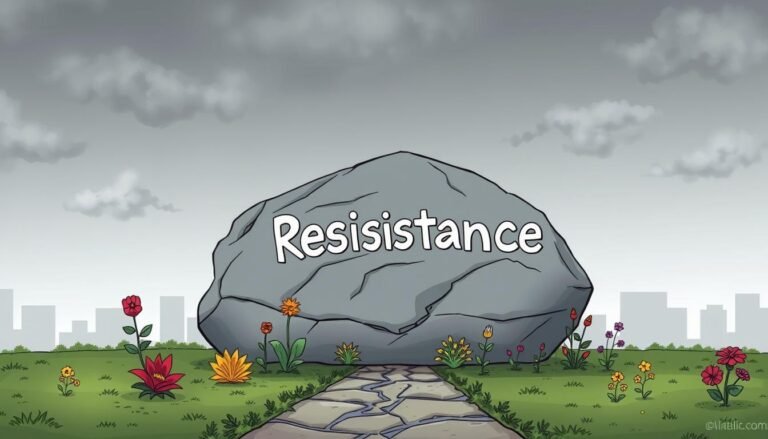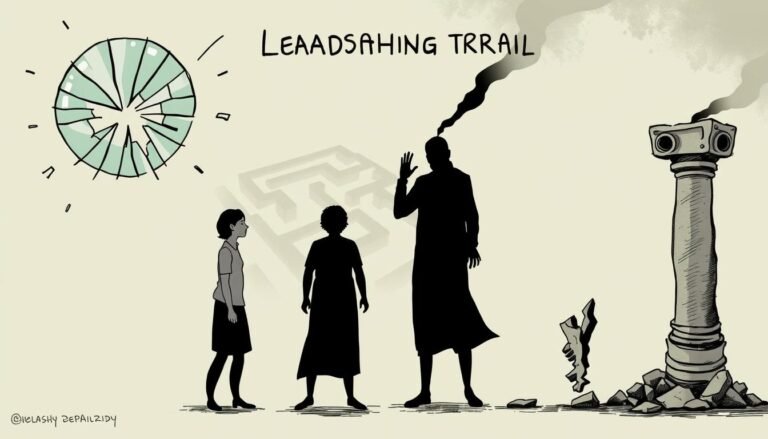Organizational Learning and Knowledge Sharing in Irish Enterprises
Imagine you’re in a tech company in Dublin. You can feel the excitement as everyone shares their thoughts. Open talks and teamwork make this place special. It’s more than just an office; it’s key to success.
A big US company lost $1 million when a key marketing manager left. Most of a company’s smarts are in its people. For Irish groups, this makes sharing knowledge crucial.
In today’s tough market, Irish businesses need smart ways to grow. They need to keep and grow what their staff knows. Using all this unused wisdom can create new ideas and lead to real wins.
Many firms are starting to manage their knowledge better. By encouraging sharing and learning, Irish groups can keep getting better. This can help them stay strong and keep changing for the best.
Key Takeaways
- 90 percent of knowledge in any firm is embedded in employees’ minds.
- Departures of key personnel can result in significant financial losses.
- Redundant internal knowledge can be a crucial driver for innovation and success.
- Knowledge management strategies are pivotal for organizational growth.
- Adapting learning systems can transform enterprises into dynamic, resilient entities.
We are going to look deeper into how Irish groups can be leaders. Stay with us for new ideas, plans, and stories. These will show why learning and sharing are so important.
The Importance of Organizational Learning in Irish Enterprises
Organizational learning is key for success in today’s Irish businesses. It helps them make better choices, safeguard their ideas, and encourage new ideas in the workplace.
Facilitating Better Decision Making and Processes
Good decision making is vital for a company’s success. By learning as a group, companies get better at using what they’ve learned to make choices and learn from new info. Research shows that companies that learn well do much better.
For example, in schools, leaders who focus on learning can help teachers teach better. And in businesses, this learning can improve how we make choices. This can make the company work better and reach its goals more easily.
Enhancing Intellectual Property
Protecting ideas is very important in Ireland for staying ahead. Sharing what we know in a smart way can help protect our smart ideas. The U.S. Army, for example, uses reviews to share what they’ve learned. This makes them better at what they do. Irish businesses can do the same to keep their good ideas safe and use them well.
Stimulating Cultural Change and Innovation
A culture that loves new ideas is important for any business that wants to last. Learning together helps make this culture thrive, just like at GE. They have a special way of driving change through supporting new ideas. This makes their business better. Schools also do this by encouraging teachers to learn together. This helps them teach in better ways. Businesses can create spaces where everyone learns from each other. This kind of environment supports new ideas all the time.
By focusing on learning, Irish companies can make better choices, keep their good ideas safe, and encourage new and adaptable ways of working. This helps them stay strong even when things change.
Knowledge Management: A Strategic Approach
In today’s quick business world, Strategic Knowledge Management is key for success. It’s about collecting, growing, sharing, and using what we know to reach goals. By doing this well, Irish companies can work better and stay ahead. It helps knowing the main parts and different views. This makes using knowledge systems better and outcomes stronger.
Definition and Core Components
Knowledge management’s core parts are people, processes, culture, structure, and technology. They work together to handle knowledge well in a company.
- People: The ones who make, share, and use knowledge.
- Processes: The ways for managing knowledge.
- Culture: The work environment that supports sharing.
- Structure: The systems that hold knowledge activities.
- Technology: The tools for sharing knowledge in a tech way.
Managing knowledge right makes data easy to find and use. This is key to keeping knowledge valuable for a company.
Techno-centric, Organizational, and Ecological Perspectives
There are three views on managing knowledge: through tech, organization design, and interactions with the environment. Each view gives special methods for handling knowledge:
- Techno-centric Perspective: This looks at how technology helps create and share knowledge. Tools like databases and cloud computing are key for this view.
- Organizational Perspective: This focuses on making the work environment good for learning. It uses design to encourage knowledge sharing.
- Ecological Perspective: This view sees knowledge management as part of a broader environment. It highlights the importance of a supportive community for sharing knowledge.
A study with 268 people from different sectors shows how learning affects sharing knowledge. It found that how top managers and team members interact really affect how well we share knowledge. This shows that different learning ways should be mixed in plans to make knowledge flow better.
| Study Aspect | Findings |
|---|---|
| Sample Size | 268 individuals |
| Learning Mechanisms’ Influence | 35% variance explained |
| Knowledge Absorption Correlation | High |
| Top Management Actions | Significant Effect |
Irish businesses can use this info to build a strong culture based on knowledge. A good approach to managing knowledge helps in making better decisions and being more productive. It also keeps them ahead of the competition.
The Role of Corporate Training in Employee Development
Corporate Training Programs are key to improving employee skills and growing the company. They focus on making sure employees have the right skills and knowledge. This helps them work at their best.
A 2021 Pew Research Study showed that 63% of people left their jobs because they saw no chances to grow. An online poll found that 43% quit because they didn’t see any progress in their job. These numbers stress how important it is to have good training and development programs.
Companies like Panda Restaurant Group see a lot of young employees staying. They do this with mentorship and courses at the University of Panda. Such programs make workers better at their jobs, more involved, and happier.
A big group of employees at top companies report that they often get training. This makes these companies great places to work. Good training programs keep the team motivated and skilled.
Training makes sure everyone in the company is on the same page. E-learning and special systems help companies follow how employees are doing. This keeps the training useful and interesting for everyone.
Advanced training cuts the number of people who quit by 40%. Also, well-trained workers make fewer mistakes, share more knowledge, and keep customers happy. This means more customers stick around, helping the business grow.
| Statistic | Insight |
|---|---|
| 63% of employees stated no advancement opportunities as the main reason for quitting | Highlighting the necessity for continuous Employee Skill Enhancement |
| 40% reduction in retirement rates with advanced training | Signifying the long-term benefits of Organizational Competencies |
| 50% of workers may require retraining by 2025 | Underlining the need for adaptable Corporate Training Programs |
Creating a safe, creative workplace is a big deal in training programs. This makes employees happier and helps the company do better. In a world with a lot of change and uncertainty, learning and developing non-stop is the way to win.
Workplace Collaboration and Information Exchange
A Collaborative Work Environment is key for any successful company. It allows a free exchange of ideas. This is vital for staying innovative and flexible today.
Importance of Smooth Flow of Ideas
When ideas move freely in a work area, great minds can work together. This leads to new, exciting solutions and better ways to do things. In China, for example, tech companies have done amazing work together. They’ve boosted their tech game by sharing ideas and knowledge, which is key to making big leaps forward.
Challenges in Knowledge Sharing and Overcoming Them
While everyone knows sharing knowledge is important, not everyone does it. Many companies have trouble getting past this. The problem is especially big in countries like the U.S., France, Germany, Spain, and the U.K., where sometimes employees find it hard to share info openly.
So, what can be done? Companies need to make their places more sharing-friendly. This could mean giving rewards for sharing or offering chances to learn. By focusing on connecting people and departments, organizations can break down these barriers. This helps everyone work together better, boosting innovation and their company’s health.
Utilizing Intellectual Capital in Irish Businesses
Intellectual capital is key for setting Irish businesses apart and gaining an edge. It came into the spotlight as a concept in the 1990s. Entrepreneurs like Thomas A. Stewart recognized its potential. Managing and using this asset well is now essential for success in today’s economy. It helps companies work better and stay ahead in their fields.
Research shows that how much a company learns greatly affects its intellectual capital. In Ireland, this means getting better at what the business does best together. A study by the Islamic Azad University of Mazandaran Province found that learning within organizations really makes a difference:
| Parameters | Coefficients |
|---|---|
| Organizational Learning’s Effect on Intellectual Capital | 0.88 |
| Academic Entrepreneurship’s Effect on Intellectual Capital | 0.20 |
| Organizational Learning’s Effect on Academic Entrepreneurship | 0.72 |
This study also points out how vital academic entrepreneurship is. It boosts the use of intellectual capital with a fair impact. Yet, its main job is to make academic entrepreneurship better. This shows that learning within the company and academic initiatives are both crucial.
Turning to leadership, it plays a big part in building intellectual capital. A survey including 1,418 Polish workers in various sectors backed this up. It confirmed that transformational leadership really works. Irish companies aiming to do well should create a culture that is all about learning and not fearing to make mistakes.
Focusing on using intellectual capital the right way is crucial for businesses in Ireland. It encourages innovation and gives them a leg up. By applying these findings, companies can boost their core strengths and stay at the front in a world that’s all about knowledge.
Developing Learning Organizations in Ireland
Agriculture is very important in Ireland’s economy, especially the dairy sector. The shift to learning organizations is crucial. Teagasc leads this change, pushing for better innovation and competitiveness. They have set up monitor farms (MFs), which share top practices and build a culture of continuous improvement.
This change means combining different ways of learning. The journey includes learning at all levels and from all experiences. With monitor farms, the whole system becomes more open, supporting Irish businesses to be adaptive.
Learning through experience is key in any organization’s growth. What we learn by doing has a big effect on how we use our skills. This approach helps shape the learning organizations in Ireland.
Currently, Ireland’s main focus is the dairy farm sector, due to its success. But, not enough adults are partaking in learning and training activities. Only 14% are involved, far below Sweden and Finland. This shows the urgent need for a stronger culture of continuous improvement.
| Country | Adult Education and Training Participation (2021) |
|---|---|
| Ireland | 14% |
| Sweden | 35% |
| Finland | 31% |
| EU Average | 11% |
The need for learning organizations is clear. This is especially true with today’s changes in the job market, like digitization. Irish companies must focus on training and improving their skills. Being open to change is the way for Ireland’s businesses to stay strong in the ever-shifting market.
Business Intelligence and Innovation Strategies
Business Intelligence Adoption greatly helps modern enterprises drive their innovation strategies. Companies rely on it to gather insights for better decisions and value creation. But, some find it hard to use these insights for a competitive edge. This section looks at how effective knowledge management and government actions can boost innovation.
Adopting Effective Knowledge Management Systems
Using strong knowledge management systems is key for Innovation Strategy Execution. Though Business Intelligence gives new knowledge, just having it doesn’t guarantee innovation or better results. Companies need to use this knowledge well. Research shows that being able to create knowledge is critical for innovation through Business Intelligence.
Creating new models lets companies mix both exploring new ideas and making the most of old ones. This mix boosts a company’s performance. Making use of dynamic capabilities is crucial in these models and leads to big performance improvements. Studies also show that having skilled people in AI and a digital-friendly work culture boosts how innovative companies can be.
Role of Government Initiatives in Innovation
The Government’s support is very important in driving business innovation, especially in countries like Ireland. Programs such as Knowledge Transfer Ireland (KTI) are vital. They help turn government-backed research into new commercial ventures. The National IP Protocol also plays a critical role, guiding research to commercial success and making Ireland a leader in knowledge transfer.
Government-backed research efforts and international partnerships help businesses innovate even more. These collaborations and initiatives support the adoption of Business Intelligence and various tech innovations. They ensure that businesses keep up with the fast changes in the market effectively.
| Aspect | Impact on Innovation |
|---|---|
| Business Intelligence Adoption | Enhanced decision-making and economic value |
| Effective Knowledge Management | Improved performance through knowledge exploitation |
| Government Initiatives | Facilitates research commercialization and innovation |
Organizational Learning and Knowledge Sharing in Irish Enterprises
Irish enterprises need to focus on Organizational Knowledge Retention and an Enterprise Learning Culture. They must share their Shared Intellectual Assets for long-term success. This is because 90% of what a company knows is in its employees’ minds. So, saving this information is key to staying ahead.
When employees share what they know, it often happens one-on-one. This can build strong teams over time. But, if someone leaves and takes their knowledge with them, it can cost a company a lot of money. For instance, a big US company lost about $1 million when a smart marketing manager left. It shows how important it is to have a plan to keep what your employees know inside your company.
A lot affects if people are willing to share what they know. Things like the company’s culture, its leaders, if they give out rewards, and how they use technology all make a difference. It also matters how well people work together and the promises they feel their bosses keep. A strong Enterprise Learning Culture makes dealing with these factors easier.
If a company loses what it has learned, it makes solving problems harder. It can also weaken the strong networks that have been built. So, it’s very important to keep what your company knows safe. This way, your company can stay sharp and keep on learning.
| Key Factor | Impact on Learning and Sharing |
|---|---|
| Culture | Influences willingness to share knowledge |
| Leadership | Shapes the organizational learning environment |
| Rewards | Encourages participation in knowledge sharing |
| Information and Communication Technology (ICT) | Facilitates effective communication and knowledge exchange |
| Working Communities | Builds networks for continuous learning |
Making an Enterprise Learning Culture is important for Irish companies. They must also focus on keeping and sharing knowledge. This can help them grow and stand out around the world.
Conclusion
The journey through organizational learning and knowledge sharing is essential for Ireland’s businesses. Various studies show a positive link between creating knowledge, being creative in the workplace, and good performance. This shows how crucial it is for companies to make knowledge management a key part of their strategy.
Having solid knowledge management strategies is vital for success in organizational learning. Cho & Korte and Tubigi & Alshawi agree that knowledge is crucial for companies to use these strategies well. Effective use of knowledge can improve service quality and help businesses stay ahead in the market.
To improve knowledge sharing, addressing challenges and using government support are important steps. Moving towards a knowledge-based economy, as suggested by Friedman, is crucial. By using intellectual capital and smart learning methods, Irish companies can achieve ongoing success.
FAQ
What is the significance of organizational learning in Ireland?
Organizational learning is vital in Ireland. It helps companies adapt to market changes and make better decisions. This gives them an edge over others.
By using knowledge more effectively, companies avoid losing intellectual capital. This is knowledge lost when employees leave or through repeated mistakes.
How does knowledge management contribute to business strategy?
Knowledge management involves handling what a company knows. This includes collecting, improving, sharing, and using that knowledge. Doing this helps companies meet their big goals.
It makes decision-making better, encourages new ideas, and makes everything run smoother and faster. These are all key to a company’s success.
What are the core components of knowledge management?
The key parts of knowledge management are people, processes, culture, structure, and technology. They should all work together to meet a company’s needs. This is how you successfully put knowledge management into action.
How does corporate training impact employee development?
Corporate training is vital for employees. It gives them new skills and knowledge to keep learning. This creates a culture that values learning and growing.
What employees learn helps the company too. It keeps them competitive and helps them reach their goals. This is a win for everyone.
Why is the smooth flow of ideas crucial in the workplace?
Sharing ideas well is key for working together and solving problems. It lets companies use everyone’s skills for better solutions and new ways of doing things. Working together towards common goals becomes easier.
This is how big ideas are born. When everyone can share thoughts freely, amazing things happen. It’s great for the company and the employees.
What are the challenges in knowledge sharing and how can they be overcome?
Often, people don’t want to share what they know. This can be because systems for sharing aren’t very good. Overcoming these challenges is possible.
You can get more people to share by rewarding it. Showing how sharing helps everyone is key. Also, make sure sharing ways fit what the company needs. This makes sharing smoother.
How can Irish businesses leverage intellectual capital?
Irish businesses should use their intellectual capital well. This means managing it carefully to run better and stand out. Intellectual capital is crucial for leading and staying ahead.
What is involved in developing learning organizations?
Developing learning companies means always getting better and sharing knowledge. It makes sure workers have the right skills to do well in changing markets.
Everyone learns together. This makes the company stronger and more ready for what’s next. A team that learns and grows together is unbeatable.
How are business intelligence and innovation strategies linked?
Business intelligence and innovation strategies go hand in hand. They both need strong systems for managing what a company knows. These setups help turn new research into real advances.
A good culture of learning and improving never stops. Innovation keeps the company fresh and ahead of the game. It’s about always getting better.
What role do government initiatives play in fostering innovation?
Government steps, like Knowledge Transfer Ireland (KTI), help turn research into business. They also encourage sharing what’s learned. These steps put Ireland at the forefront of new business ideas.
Source Links
- Examining the Factors to Knowledge Sharing within an Organisational Context
- No title found
- Frontiers | Can Inter-organizational Knowledge-Sharing Improve Enterprise Innovation Performance? The Mediator Effect of Innovation Capability and the Moderator Effect of Network Characteristics
- Organizational Learning – an overview
- Knowledge and Information in Organizational Learning: An Introduction | The Inquiring Organization: How Organizations Acquire Knowledge and Seek Information
- Introduction
- Organizational knowledge management and sharing: A study in the Federal Direct Administration
- The difference between Information Management and Knowledge Management
- Employee Training and Development: The Benefits of Upskilling or Reskilling Your Team
- The Importance of Training Employees for your Business
- Employee Development. Learn all about the process. – HCM Deck
- Cooperation Is Key to an Agile Workplace
- Towards Sustainable Knowledge Sharing Practices: An Analysis of Organizational Level Enablers
- Intellectual Capital, and Knowledge Processes for Organizational Innovativeness across Industries: The Case of Poland – the full version of a study published in JIC
- No title found
- Skills Gap in Ireland: Urgent Need for Lifelong Learning and Upskilling – IMI
- Business intelligence and analytics use, innovation ambidexterity, and firm performance: A dynamic capabilities perspective
- Nancy Dixon: Profiles in Knowledge
- Organizational Learning
- The Impact of Digital Knowledge Management on Organizational Performance
- Organizational learning and knowledge acquisition | Cooperative Strategy: Managing Alliances and Networks
- Microsoft Word – Colin-format2








